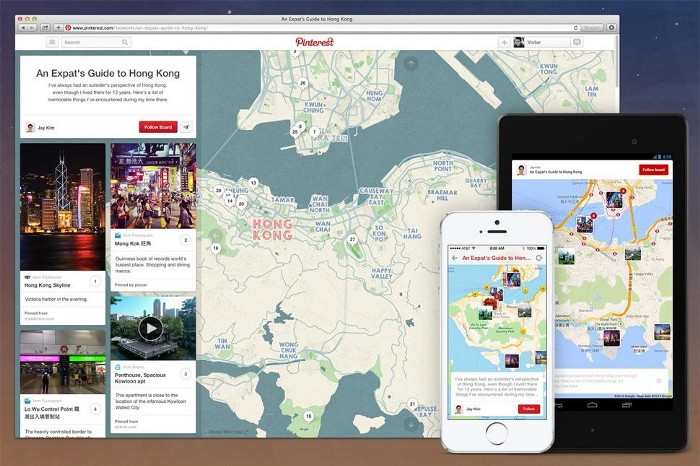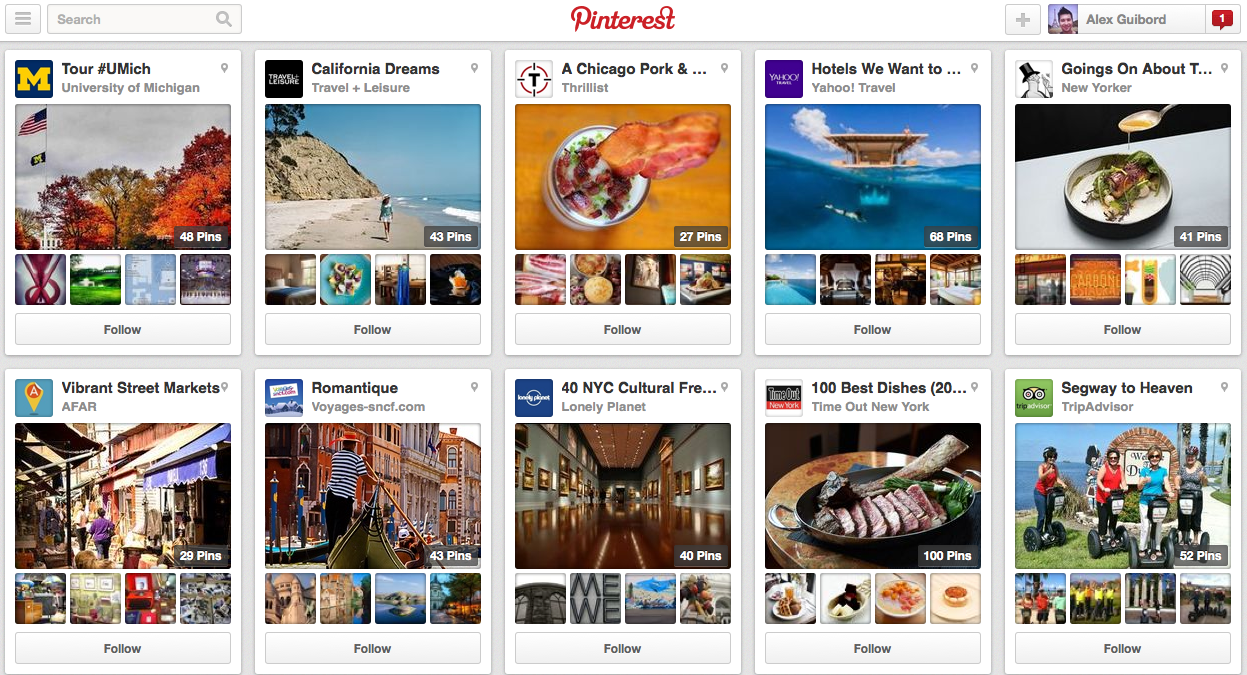Place Pins expand Pinterest’s foothold in the lucrative online travel industry, offering location-based marketing and visual storytelling in one social network.
After gaining popularity as a goldmine for recipes, wedding ideas and trendy fashions, Pinterest is now earning mainstream recognition as a dominant and lucrative player on the social media scene. The company was recently valued at $3.8 billion—generating revenues four times more per click than Twitter and 27 per cent more per click than Facebook. As it moves towards monetization, Pinterest is banking on brand new categories of pins to bring in future ad opportunities, creating exciting ways for publishers and brands to generate leads and engage potential customers.

Last week Pinterest unveiled Place Pins, which will surely appeal to honeymooners and vacationers with the travel bug. Users can tag images of anything—from landmarks, businesses, products and attractions to specific geolocations on a map. The new feature will also integrate with map apps on iOS and Android so users can access directions and make informed shopping decisions on their mobile devices.
According to Pinterest, users post about 1.5 million place pins every day—that’s more than 750 million potential travel destinations floating around the social network. And major brands in hospitality and publishing are following suit. The United Kingdom’s official tourism agency, for example, cleverly mapped out all the UNESCO World Heritage Sites within its borders. This way potential tourists can see all the historic sites they can visit on their journey, including links to official guides and travel packages on offer. Similarly, The New Yorker did an excellent job mapping out its restaurant reviews so travelling readers always know where to eat. And Condé Nast Traveler turned the results from its Readers’ Choice Awards into an interactive vacation planner for luxuriously self-indulgent types.
But how does that make money? The latest developments from Pinterest may have huge implications for attracting more businesses and advertising revenue to the fold—especially with greater competition in the local business listing space.

Just last month, Pinterest also began testing sponsored content to help retailers generate more sales directly through the service. Promoted Pins will give retailers more market reach through strategic ad buys and analytics.
The future of online shopping and travel booking never looked brighter: Canadians spent $18.9 billion buying goods and services online in 2012—58 percent of which were travel arrangements. That’s some serious dough! It’s no wonder Pinterest hopes Place Pins will propel it to get in on the action.